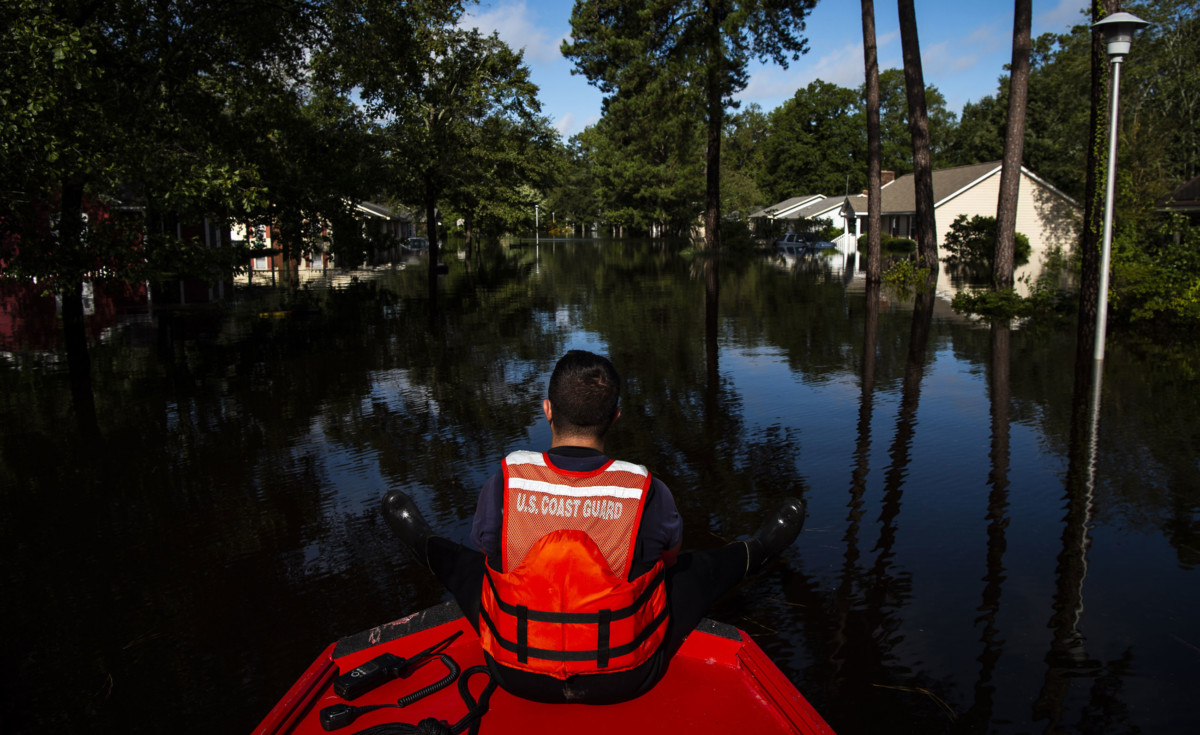Part of the Series
Planet or Profit
Support justice-driven, accurate and transparent news — make a quick donation to Truthout today!
Days after making landfall, Hurricane Florence continues to dump rain across the US eastern seaboard.
Politicians and media have called the amount of rainfall across North Carolina “epic.” That state has borne the brunt of the impacts. When Florence made landfall last Friday, Wilmington, North Carolina, was hit by gusts of 105 miles per hour, the strongest winds the city had felt since 1958.
One mayor described Florence as “twice the size of Hurricane Hugo” which raked the Carolinas back in 1989, while residents described the aftermath of the flooding and destruction as similar to that of a “bomb.” As of Sunday, Swansboro, North Carolina, had already received 33.89 inches of rain, smashing the previous record by nearly one foot.
In North Carolina alone, one million people had to be evacuated, as 19 states sent aid to that state alone, and highly toxic coal ash was washed into a nearby lake from the flooding.
However, as bad as all of this is, we must resist the impulse to see it as a wild aberration. Hurricane Florence is a glimpse of storms to come.
Bigger, Stronger, More Often
A June report by the Geophysical Fluid Dynamics Laboratory of the US National Oceanic and Atmospheric Administration (NOAA) noted that tropical cyclone events around the world will likely increase, along with rainfall rates, as the planet warms further.
The report reminded us of what science had been showing for years: A warmer atmosphere and warmer ocean waters fuel hurricanes, making them larger and stronger and causing them to occur more frequently.
With carbon dioxide (CO2) emissions and warming continuing unabated — coupled with multiple climate feedback loops intensifying the warming effect — some scientists are now warning that areas typically impacted by hurricanes might ultimately become uninhabitable.
Cornell University astrobiologist Jack O’Malley-James told Wired Magazine recently, “The negative part is that what we’re doing to the planet is making it less suitable for our own survival. Human civilization has depended upon millennia of fairly stable and predictable climate conditions.”
Given that sea level rise is already on track to displace millions of people living in low-lying coastal areas, and that the number, size and frequency of hurricanes is only going to continue to increase, how much longer will countries continue to invest in the billions of dollars required to rebuild devastated cities in the wake of these storms?
At what point does this rebuilding simply stop? Then, where will all of the victims of these storms go?
These are the questions that reasonable policy-makers should be asking themselves, as we progress further into an era of intensifying weather events.
Trump is silencing political dissent. We appeal for your support.
Progressive nonprofits are the latest target caught in Trump’s crosshairs. With the aim of eliminating political opposition, Trump and his sycophants are working to curb government funding, constrain private foundations, and even cut tax-exempt status from organizations he dislikes.
We’re concerned, because Truthout is not immune to such bad-faith attacks.
We can only resist Trump’s attacks by cultivating a strong base of support. The right-wing mediasphere is funded comfortably by billionaire owners and venture capitalist philanthropists. At Truthout, we have you.
We’re in the midst of a fundraiser, and as of right now, we have until midnight to raise $10,000. Please take a meaningful action in the fight against authoritarianism: make a one-time or monthly donation to Truthout. If you have the means, please dig deep.
